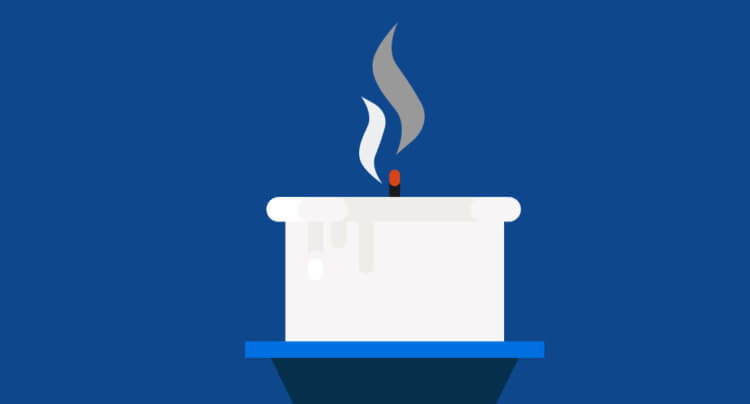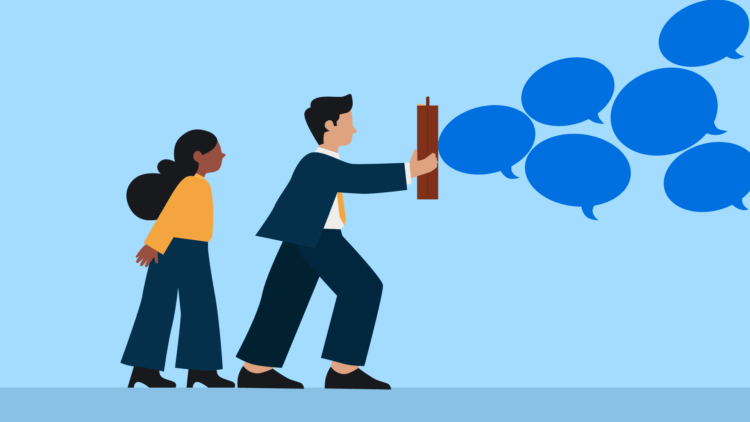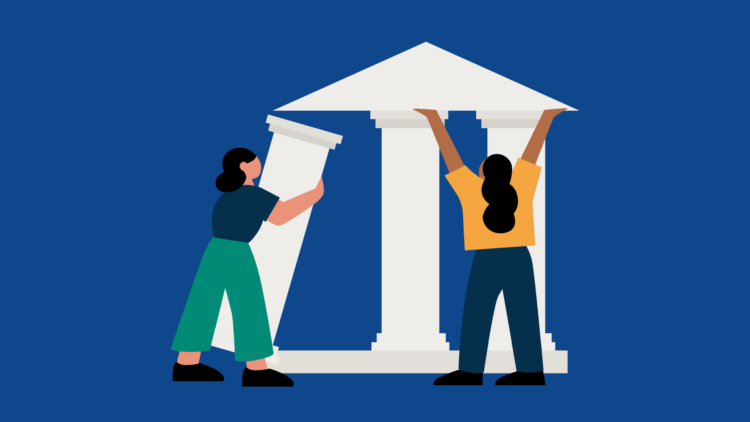Brian Cuban is no stranger to adversity. A graduate of the University of Pittsburgh School of Law, he struggled with alcohol addiction in law school then added cocaine to his résumé as a practicing attorney. He went into recovery on April 8, 2007, and has spent the last decade sharing his story and tirelessly advocating for mental health and addiction treatment—both inside and outside the legal profession.
Drawing on his personal history, interviews with law students and lawyers, and conversations with addiction and mental health professionals, his new book, The Addicted Lawyer, will aim to give lawyers at any stage of their careers another tool in their arsenal of wellness.
In honor of the ABA Law Student Division’s National Mental Health Day, we had the privilege of speaking to Brian about his upcoming book and addiction in law school. He spoke about the progress law schools are making in helping future lawyers combat addiction, and suggested who lawyers struggling with addiction can turn to for help.
About “The Addicted Lawyer”
The Addicted Lawyer is about 75 percent memoir—it has my story, the story of other law students in recovery, other lawyers in recovery, and advice from people within the realm of lawyer on what to do if you’re in recovery or if you’ve run into problems as the result of your addiction,” says Brian. “At the core, it’s the story of my descent into drug addiction and alcoholism, and how that affected my law practice and affected me in law school.
As I went through the journey, I encountered many lawyers and law students with mental health issues. I went through it at a time when there was no awareness—I was in law school from ‘83 to ‘86. People weren’t talking about mental health. There were no real resources that people could be directed to. While there’s been progress, there’s a long way to go—which is a big part of the reason I wrote the book.
Tips for Those Facing Addiction
Here are Brian’s top suggestions for law students and legal professionals who may be struggling with addiction in law school or after.
1. It’s okay to be vulnerable
When asked about why lawyers seem to encounter addiction and mental health issues, he highlights the profession’s inability to show vulnerability as a major cause.
Lawyers are people too. Whatever the demographic, you have the same genetic and environmental factors. The issue isn’t so much ‘why lawyers get addicted’—lawyers are just as likely to experience the environmental issues that trigger addiction as anyone else. The question is ‘why are lawyers so afraid of seeking help?’
As a culture, starting in law school and running through the profession, lawyers are conditioned that it is unacceptable to be vulnerable and show weakness. We, [as a profession], look at addiction as a weakness and something shameful that will cost us our job, our license, our [education]—if you’re a law student, maybe you’ll be scoffed at by your professors or your fellow students, or you’re scared you’ll have to drop out and never come back. So [lawyers] not only have the stigma around addiction that everyone feels, but the stigma that is specific to the profession: we are not permitted to be vulnerable.
2. Sobriety is Just the Start
Beyond getting sober, Brian says that dealing with addiction means getting to the root of the problem. This makes addressing addiction a much more difficult process than many expect.
One of the biggest problems I face when I speak to lawyers who are dealing with substance abuse issues is getting them to see beyond the moment. They say ‘Okay, well, I’m going to get sober and that’s all I need to do.’
Getting sober is great—we have to start stringing together sober days, but what about dealing with how you got [addicted in the first place]? When I got sober from alcohol and cocaine, getting sober was exponentially easier for me than tearing back all the layers of my life and figuring out how I got to that point.
Lawyers don’t want to deal with those issues—it’s vulnerable. It’s ‘weak’. It’s painful. People don’t want to deal with those issues in general, and in a profession where we’re taught to put up this wall around us, it becomes even more of a problem.
3. Start Small
No matter how long you’ve been struggling with addiction, Brian says it’s never too late—or too early—to start addressing the issue. Taking one small step at a time can get you there faster than you think.
One piece of advice: If you don’t start today, you will lose everything you’re afraid of losing, regardless. So why not start now? We don’t have to take giant leaps—take one small step to try and stop that cycle.
You may think you’re high-functioning now, but addiction is progressive.
Lay out your first steps: find someone you can open up with. List ten people you care about—there’s one person you can talk to if you’re afraid of using ‘the system’.
We have a tendency —when we’re dealing with alcohol and drugs, when we’ve isolated ourselves—to believe that no one cares, but people care. We just project that no one cares. When we project out, we answer the question ourselves. I did that all the time—projected that my brothers didn’t care, that my friends didn’t care—but they did.
4. Ask the Tough Questions
Recovery from addiction can sometimes mean removing yourself from the legal profession entirely, says Brian—but knowing the proper path involves a lot of self-discovery and introspection.
There’s no way to know, from my perspective, whether leaving the practice of law is the appropriate option without knowing how you got there. You have to reexamine your life and the choices that have brought you to this point. That’s what guided me, and I figured out that I never really wanted to be a lawyer in the first place. If you’re triggered by stress, and you’re not dealing with the underlying causes, you need to figure out what your triggers are and whether your triggers can be managed within the profession. Managing those triggers within the profession is probably going to require more than just day-to-day sobriety.
I’ve been in therapy for more than a decade and I’m still learning every single day. Recovery is every day for me: dealing with alcohol, dealing with drugs. Every day I reevaluate where I am and what I can do better for my recovery: unconsciously and consciously.
Resources for Lawyers Facing Addiction
So what resources are available for lawyers or law students who are struggling? Brian has plenty of suggestions:
Recovery groups are becoming popular and are available at many universities. Deans of Students should know if such groups are available within larger university structures and make it known.
Lawyers Concerned for Lawyers is present in a few different states [Massachusetts, Pennsylvania, and more]. [They provide] peer support or mutual aid support besides twelve steps or AA, if that’s not your thing. I know lawyers and law students who use Celebration Recovery, which is a Christian-based twelve-step. I know lawyers who use counselling, who use residential treatment—there are plenty of options available today that weren’t available before. Figuring out the resource that’s going to be right for you goes hand-in-hand with figuring out how you got there.
Finally, we’re lawyers and we forget that our employers can’t ask you if you’re going to rehab. That’s protected. Fear overwhelms our logic, our education, everything—that’s a constant with addiction.
Are you struggling?
For people who are unsure whether they’re truly ‘addicted’, Brian relies on a few litmus tests:
If you’re asking if you’re an addict … that usually answers the question. I’ll usually ask people ‘what do you think an alcoholic looks like?’ or ‘have you experienced consequences on any level from your drinking or drug use?’ Is that what you want your life to be, moving forward, and if not, how are you prepared to work on it?
It might not be professional consequences—I went through an entire law career where I didn’t get disbarred, I didn’t get grieved—but it certainly wasn’t for a lack of trying. Consequences can impact you personally, can impact you socially, can impact your family.
If you think you have an issue, there is no cost to reaching out to someone. Reach out to someone in your family, someone in your firm, or someone you know who has dealt with this. Reach out to your Dean of Students or Legal Assistance Program. If you can’t think of anyone to reach out to, reach out to me. Don’t project out the worst—project out what things will look like without the drugs, and without the alcohol. It’s scary—but project out the best.
Addiction in Law Schools
There’s a wonderful study that was co-authored by David Jaffe, the Associate Dean of Students at the American University School of Law in D.C. that talks about the the mental health issues that students have. I know the lawyer numbers better than the law student numbers, but law students suffer from problematic drinking issues and other mental health issues at an elevated rate as well.
[Support] starts with the Dean of Students. The Dean of Students are generally going to be the first contact within the law school when someone has an issue. The Dean of Students at every law school in this country needs to be up-to-date on this study. Once they’re up to date on the study, they need to put in place a user-friendly lifeline to them that branches out to each resource available. How many law students know that every Lawyer’s Assistance Program in this country also accepts law students? How is this information filtering down other than maybe making a pamphlet available? How often are LAPs getting into the school beyond freshman orientation?
Law schools need to put together the least-intrusive, most user-friendly pipeline that first encourages students to come forward knowing it will be confidential and allowing them to be vulnerable with someone, and then has to prong out to professors, counselling resources, and other support networks. You can’t force law students to do something—if a law student isn’t ready to open up, they’re not ready. But we can lay out multiple roads to recovery for when students need them. These things don’t have to be expensive, you don’t need to turn your school into a counselling center, you just need to invest some time.
Thanks to Brian’s efforts, law schools, organizations like the American Bar Association, and the mentors, counselors, and other recovering addicts, the legal profession is making much-needed headway in addressing mental health and addiction issues plaguing the profession. If you or someone you know is struggling with addiction, please reach out to someone you know, one of the resources above, or email Brian directly at brian@addictedlawyer.com.
Learn more about Brian’s battle with addiction and how to support your fellow lawyers and law students suffering with addiction in law school by preordering The Addicted Lawyer now.
Like this post? Want more like it? Subscribe to weekly emails from the Clio blog, and never miss an idea for improving your practice.
We published this blog post in March 2017. Last updated: .
Categorized in: Business









